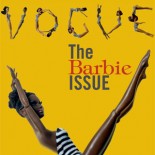Gender, Race, and Representation in Magazines and New Media
Co-sponsored by Cornell University (Africana Studies) and Syracuse University (Women’s and Gender Studies)
About the Conference
An interdisciplinary conference October 25th-27th, 2013 at Cornell University in Ithaca, New York, co-sponsored by Cornell University (Africana Studies) and Syracuse University (Women’s and Gender Studies)
In June of 2012, scholars and magazine professionals from all over the world, and from a wide array of disciplines met at the “Women in Magazine’s” conference at Kingston University in London. “Gender, Race, and Representation in Magazines and New Media” seeks to continue the discussions of the “Women in Magazines” conference and extend them to a closer consideration of race in magazines, as well as the impact of new media and technology on magazines and raced and gendered representations. This conference hopes to broaden the scope of what is traditionally considered a magazine from the bound paper journal, to virtual magazines published digitally.
Magazines have long played a key role in the everyday lives of people of all classes, races, and genders and are a fertile space for the expression of social and political philosophies. The forms such publications have taken are staggeringly diverse—mass market publications, Xeroxed fanzines, cheap weeklies for the working class, so-called “smart set,” guides for the home economist, specialized trade publications, political mouthpieces and popular tabloids—magazines have served an astonishing array of audiences and purposes. In short, magazines are a particularly rich and potent sight for research as they so often serve as important outlets for identity formation, defining what it means to be a part of a certain community, class, or even generation through both image and text.
Now, with the increased availability of magazines to scholars through digitization initiatives, as well as the explosion of blogs, tumbler sites, and online magazines that at times enhance print versions of magazines, and at other times replace them entirely, the time is ripe for examining the role, meaning and place of magazines as sites to be mined for representations of gender and race.
Organizers:
- Noliwe M. Rooks, Cornell University
- Gwendolyn D. Pough, Syracuse University
- Ayana Weekley, Grand Valley State University
- Victoria Pass, Salisbury University
Financial Support:
- Sponsored by the Central New York Humanities Corridor, from an award by the Andrew W. Mellon Foundation
- Co-sponsored by the Cornell Society for the Humanities (in the College of Arts and Sciences).
- Syracuse University (Women’s and Gender Studies)
Keynote Speakers include:
Kimberly Foster, founder and editor of “For Harriet” http://www.forharriet.com/
Kimberly Foster founded For Harriet in June 2010 as a platform for intergenerational dialogue among women of African descent. Since then, For Harriet has evolved into a multifaceted blog community that promotes Black women’s storytelling and journalism. Kimberly will receive her A.B. in African American studies from Harvard College in Spring 2013.
Ellen Garvey, professor in English and Women and Gender Studies at New Jersey City University. http://web.njcu.edu/faculty/egarvey/Content/default.asp
Ellen Gruber Garvey is the author of Writing with Scissors: American Scrapbooks from the Civil War to the Harlem Renaissance. Her earlier book, The Adman in the Parlor: Magazines and the Gendering of Consumer Culture, won the 1996 prize from the Society for the History of Authorship, Reading and Publishing for the best book on the history of the book. Both books are from Oxford University Press. Garvey has published extensively on women editing periodicals, book advertising, American abolitionists’ use of newspapers as data, and on magazine history. She initiated the Research Society for American Periodicals website and its resource page and has been a fellow of the National Endowment for the Humanities and the National Humanities Center among others, and was a Fulbright Walt Whitman Distinguished Chair in American Literature in the Netherlands. She is Professor of English at New Jersey City University, where she co-edits the journal Transformations: The Journal of Inclusive Scholarship and Pedagogy.


may i still submit my abstract for the conference?
When will the actual program be posted? thanks!
A schedule is available in the most recent posts on the blog here: https://cornellmagazinesconference.wordpress.com/2013/09/10/conference-schedule/
We also have a posts with a overview schedule and the bios of our participants.
Pingback: A turnaround: how I came to rethink my view on Wikipedia | Rae Ritchie